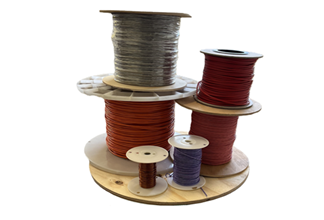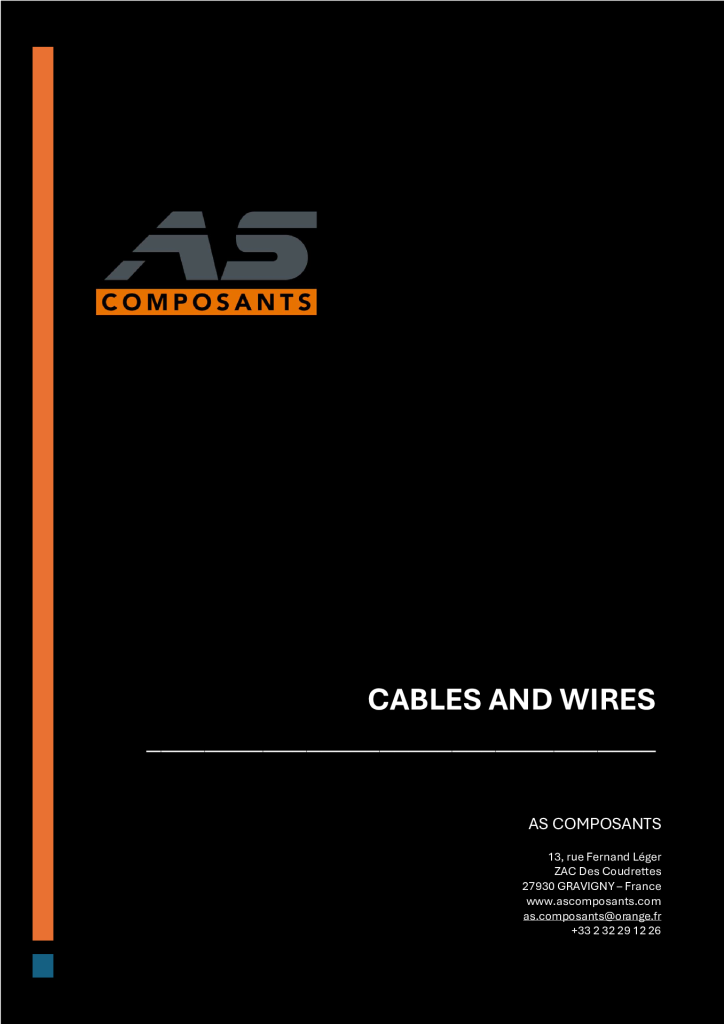
- ConstructionSingle or Multi Pair
- ConductorThermocouple, Extension, Compensation
- Thermocouple TypeK, T, J, E, N, R, S, B, C
- Conductor SizeAWG 12 to AWG 34
- Conductor StrandingSolid or Multi Strand
- Core InsulationPVC, Teflon, Kapton, Silicon, Fiber Glass, Ceramic Fiber
- ScreenBraid and external armoring available
Cables & wires
Thermocouples require specific cables to ensure proper transmission of the temperature signal. AS Composants oers the following three main families:
- So-called “thermocouple” cables which are made with the same alloys as the sensor itself, ensuring optimal accuracy. They are available with dierent insulation types: PVC, ceramic fiber, fiberglass, fluoropolymers (Teflon), Kapton or silicone, depending on the conditions of use. They are identified with the letter “T” in their designation according to the DIN IEC 60584.
- Extension cables replicate the nominal composition of the thermocouple but are used at lower temperatures to extend the signal to the measurement system. They are identified with the letter “X” in their designation according to the DIN IEC 60584.
- Compensation cables use substitute alloys that have a thermoelectric behavior similar to that of the thermocouple within a limited temperature range. They are identified with the letter “C” in their designation according to the DIN IEC 60584.
Multi-pair versions are also available, where several twisted pairs are grouped under a single sheath to optimize installation. The cables are flexible, durable, economically viable, and designed to minimize both signal disturbances & attenuation.
They can operate in temperature ranges up to 1200 °C, depending on the insulation materials used. The range includes a wide variety of insulators each suited for a specific temperature range. They also can be customized according to applications: reinforced against moisture, oils, chemicals, electromagnetic interference, mechanical stress, and high-temperature environments
